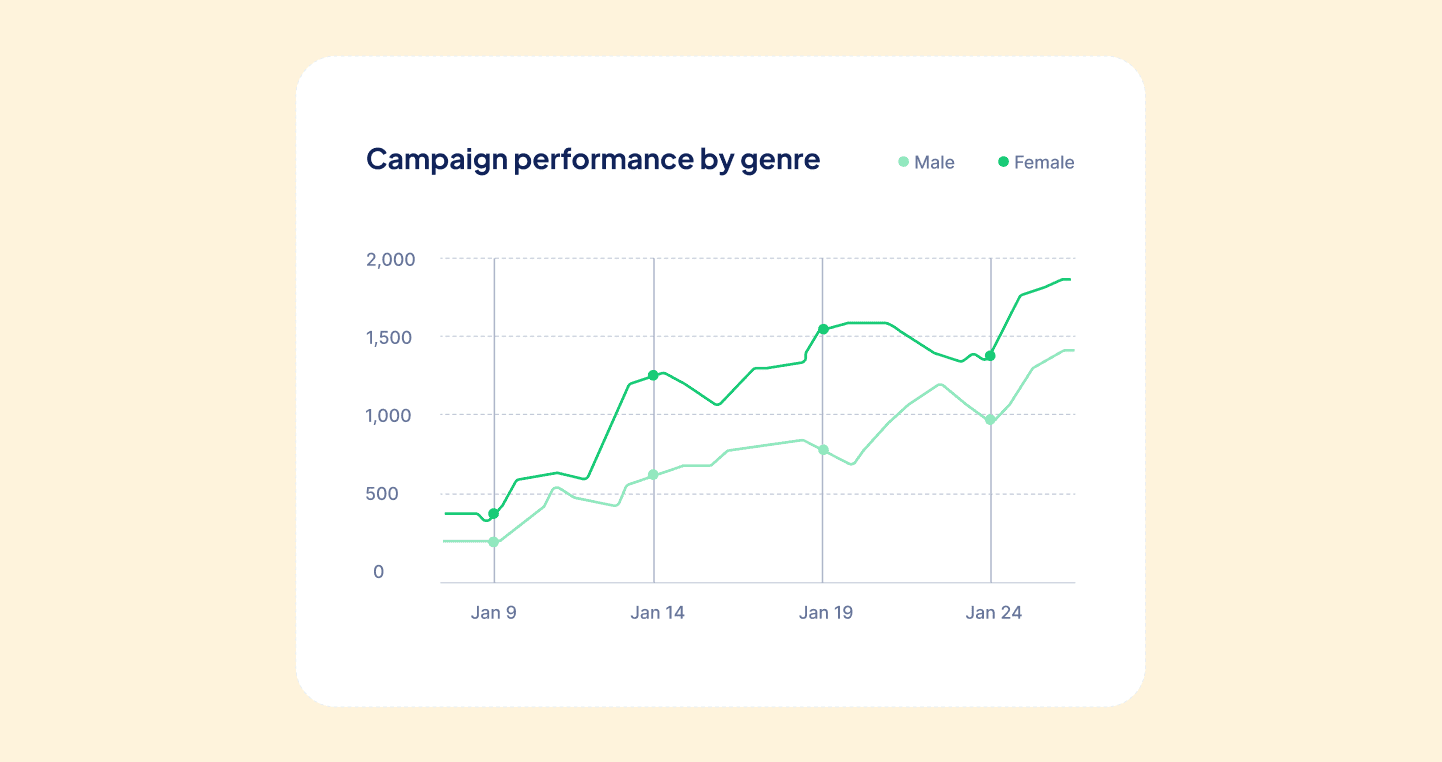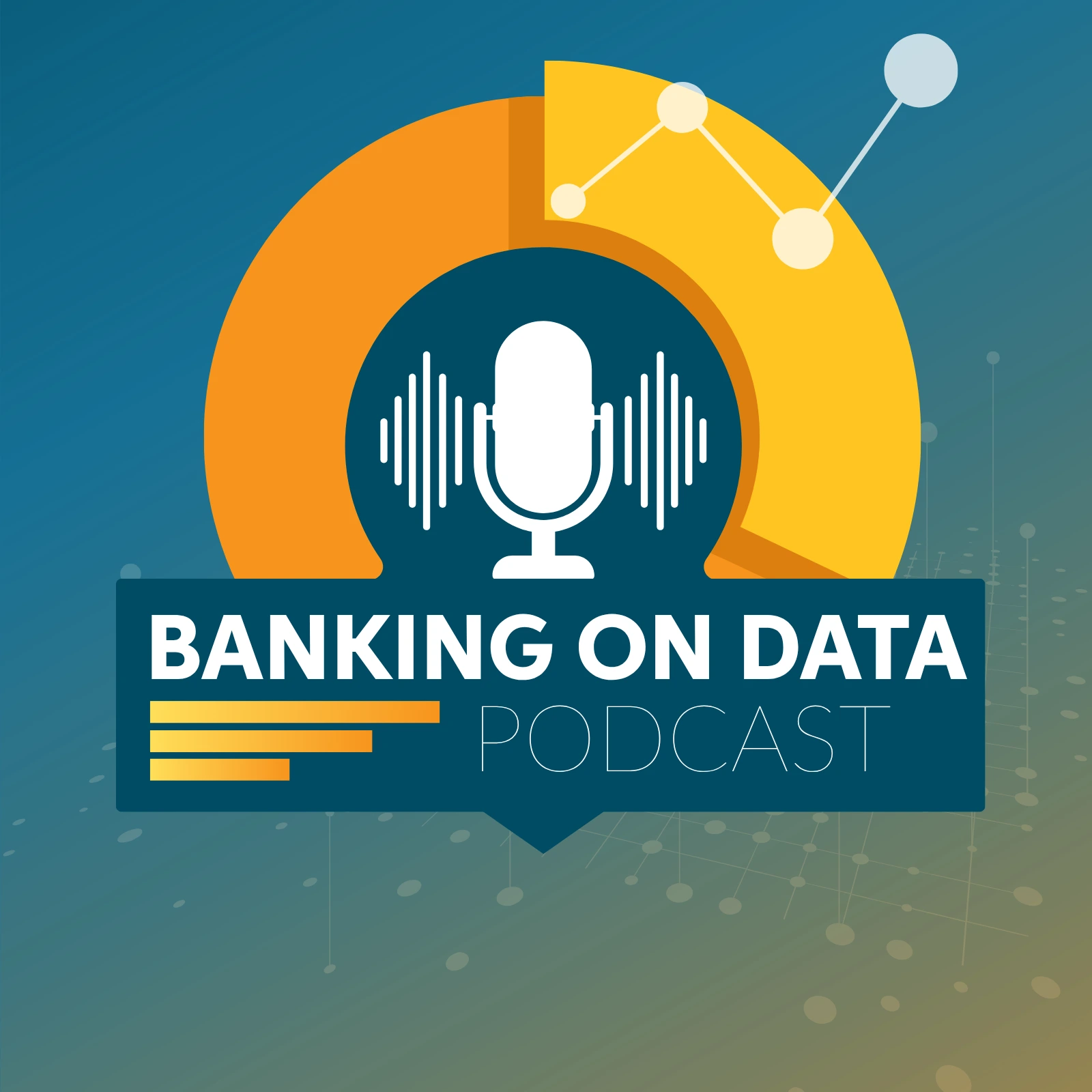Artificial intelligence is the hottest topic in banking right now. Every conference, article, and C-suite conversation seems to circle back to AI’s potential for community financial institutions. But before any bank can truly harness that potential, there’s one crucial step that often gets overlooked: data governance.
In this episode of The Banking Data Podcast, Lumio’s Chief Product Officer, Jeff Fink, joins Ed Vincent to unpack why creating a solid data foundation is the real starting point for any AI strategy. From building a common data language and data dictionary to unifying data silos and enforcing stewardship, Jeff explains how the right governance framework reduces risk, strengthens trust, and enables banks to move confidently into the AI era.
Listen or watch the full episode or continue reading to learn more.
Before AI: Get Your Data House in Order
AI can’t thrive on messy data. As Ed noted during the episode, recent findings from a Jack Henry and Bank Director survey show that:
- 1 in 3 bank leaders cite an inability to use data effectively as a top technical challenge.
- 56% of banks still keep data siloed, and 41% rely on spreadsheets to manage critical business data.
- Only 18% measure ROI on tech investments—highlighting how poor data visibility hinders innovation.
Those numbers paint a clear picture: while banks are excited about AI, many are still struggling with the fundamentals of data quality, accessibility, and governance. Jeff reinforced the point bluntly:
“Garbage in, garbage out. Without reliable, consistent data, even the most advanced AI model will produce misleading or risky results."
The Cost of Bad Data
The financial impact of poor data governance isn’t theoretical, it’s staggering. According to a June 2025 Gartner report, bad data costs the average enterprise $13–$15 million annually in lost productivity, missed opportunities, and compliance inefficiencies.
The compounding effects are even worse:
- 20–30% of enterprise revenue is lost to data inefficiencies.
- Data teams spend half their time on remediation instead of innovation.
- Fixing a data issue after it reaches a boardroom dashboard can cost 100x more than addressing it at ingestion.
When you connect those statistics to AI, the message is clear: AI can’t create insight from chaos.
Building a Common Data Language
A strong data governance program starts with creating a shared understanding, what Jeff called a “common data language.”
That’s where a data dictionary or business glossary becomes foundational. It defines key metrics and terms consistently across the organization, ensuring that “active customer” or “delinquent loan” means the same thing whether you’re in operations, lending, or risk management. This consistency doesn’t just improve analytics, it builds trust in the data driving decisions. It also supports compliance expectations, where regulators increasingly demand institutions to prove data lineage and demonstrate consistent usage across departments.
“Governance gives you transparency and confidence,” Jeff noted. “Without it, you’re just feeding ambiguity into your systems.”
Breaking Down Data Silos
Another major challenge for banks? Fragmented systems. While more than a quarter of financial institutions (28%) have invested in advanced analytics platforms in the past 18 months, that figure jumps to 70% for banks over $10 billion in assets, revealing how mid-sized and community institutions still lag behind in unified data infrastructure.
Jeff emphasized that solving this starts with a unified data strategy, not a patchwork of projects. That means defining a single source of truth and building the guardrails to manage access, maintain compliance, and ensure quality.
Best practices include:
- Establishing metadata management to track lineage, definitions, and update frequency.
- Appointing data stewards within each business unit to monitor quality and usage.
- Embedding governance as a daily discipline, not a one-time initiative.
“You can’t scale AI without scalable data practices,” Jeff said. “Governance is what makes data repeatable, reliable, and ready for innovation.”
From Risk to Resilience
Poor governance doesn’t just slow innovation, it amplifies risk. Jeff and Ed discussed how inconsistent definitions and missing metadata can turn into operational, reputational, and regulatory exposure.
In one real-world example, a bank fed its AI loan approval model with inconsistent borrower income fields (some monthly, others annual) and duplicate records. The result? Biased credit decisions that denied qualified borrowers and overextended others.
The financial consequence:
- Increased defaults and compliance fines (costing millions)
- Regulatory scrutiny and reputational damage
- Erosion of customer trust
As Ed put it, “These aren’t theoretical risks. They’re real losses that could have been avoided with proper governance checks upfront.”
Why Your Core System Isn’t Enough
One of the most common misconceptions in community banking is that the core system should be the data hub. But Jeff was clear: that’s not what it was built for.
Core systems are transactional, designed to process payments and run day-to-day operations, not to manage or analyze enterprise data. They lack the governance capabilities for lineage tracking, role-based access, or metadata management that modern analytics and AI require.
“Cores are built for running the bank - not understanding it” - Jeff Fink
Instead, banks should look to build or partner for modern data platforms that can unify core, CRM, loan, and operational data under one governed model, creating the foundation for AI and advanced analytics.
The Path Forward: Data Governance as AI Readiness
As AI adoption accelerates, banks are also confronting the need for AI governance, policies, oversight, and accountability frameworks. But as Jeff concluded, that starts with data.
“You can’t have AI governance without data governance,” he said. “It starts at the data layer, creating a single source of truth, defining the guardrails, and ensuring your foundation is solid before you innovate.”
AI will only ever be as smart as the data it’s built on. For community banks looking to lead with trust, transparency, and ROI, data governance isn’t a side project, it should be the first step.
Sources:
https://www.bankdirector.com/article/2025-technology-survey-banks-grapple-with-data-ai-maturity
Emphasize your product's unique features or benefits to differentiate it from competitors
In nec dictum adipiscing pharetra enim etiam scelerisque dolor purus ipsum egestas cursus vulputate arcu egestas ut eu sed mollis consectetur mattis pharetra curabitur et maecenas in mattis fames consectetur ipsum quis risus mauris aliquam ornare nisl purus at ipsum nulla accumsan consectetur vestibulum suspendisse aliquam condimentum scelerisque lacinia pellentesque vestibulum condimentum turpis ligula pharetra dictum sapien facilisis sapien at sagittis et cursus congue.
- Pharetra curabitur et maecenas in mattis fames consectetur ipsum quis risus.
- Justo urna nisi auctor consequat consectetur dolor lectus blandit.
- Eget egestas volutpat lacinia vestibulum vitae mattis hendrerit.
- Ornare elit odio tellus orci bibendum dictum id sem congue enim amet diam.
Incorporate statistics or specific numbers to highlight the effectiveness or popularity of your offering
Convallis pellentesque ullamcorper sapien sed tristique fermentum proin amet quam tincidunt feugiat vitae neque quisque odio ut pellentesque ac mauris eget lectus. Pretium arcu turpis lacus sapien sit at eu sapien duis magna nunc nibh nam non ut nibh ultrices ultrices elementum egestas enim nisl sed cursus pellentesque sit dignissim enim euismod sit et convallis sed pelis viverra quam at nisl sit pharetra enim nisl nec vestibulum posuere in volutpat sed blandit neque risus.

Use time-sensitive language to encourage immediate action, such as "Limited Time Offer
Feugiat vitae neque quisque odio ut pellentesque ac mauris eget lectus. Pretium arcu turpis lacus sapien sit at eu sapien duis magna nunc nibh nam non ut nibh ultrices ultrices elementum egestas enim nisl sed cursus pellentesque sit dignissim enim euismod sit et convallis sed pelis viverra quam at nisl sit pharetra enim nisl nec vestibulum posuere in volutpat sed blandit neque risus.
- Pharetra curabitur et maecenas in mattis fames consectetur ipsum quis risus.
- Justo urna nisi auctor consequat consectetur dolor lectus blandit.
- Eget egestas volutpat lacinia vestibulum vitae mattis hendrerit.
- Ornare elit odio tellus orci bibendum dictum id sem congue enim amet diam.
Address customer pain points directly by showing how your product solves their problems
Feugiat vitae neque quisque odio ut pellentesque ac mauris eget lectus. Pretium arcu turpis lacus sapien sit at eu sapien duis magna nunc nibh nam non ut nibh ultrices ultrices elementum egestas enim nisl sed cursus pellentesque sit dignissim enim euismod sit et convallis sed pelis viverra quam at nisl sit pharetra enim nisl nec vestibulum posuere in volutpat sed blandit neque risus.
Vel etiam vel amet aenean eget in habitasse nunc duis tellus sem turpis risus aliquam ac volutpat tellus eu faucibus ullamcorper.
Tailor titles to your ideal customer segment using phrases like "Designed for Busy Professionals
Sed pretium id nibh id sit felis vitae volutpat volutpat adipiscing at sodales neque lectus mi phasellus commodo at elit suspendisse ornare faucibus lectus purus viverra in nec aliquet commodo et sed sed nisi tempor mi pellentesque arcu viverra pretium duis enim vulputate dignissim etiam ultrices vitae neque urna proin nibh diam turpis augue lacus.

